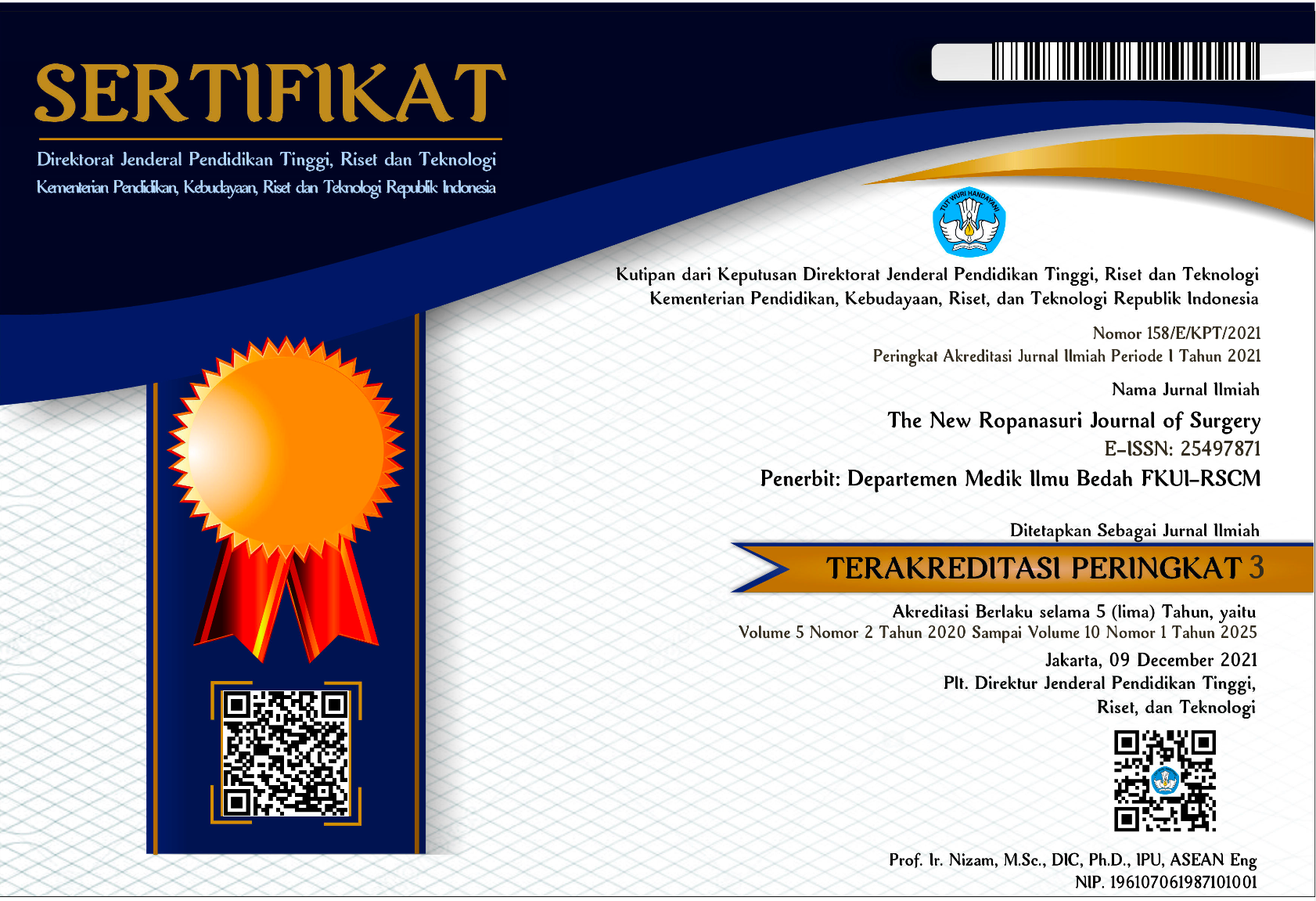Abstract
Introduction. As a major outcome of bariatric surgery, weight loss can be affected by many factors, such as sociodemographic, behavioral problems, genetics, patient status, and the surgical technique. However, limited data were available. This research aimed to seek a correlation between age and BMI with excessive weight loss after bariatric surgery.
Method. Cross–sectional study design from 2 bariatric centers in Jakarta, using data from 2018–2022. Percentage Excessive Weight Loss (%EWL) 3 months was an outcome measurement tool.
Results. Of 87 subjects enrolled with male to female ratio was 1:4. Age ranged from 14–62 years (median 39 years). Type 1 obesity, type 2 obesity, and type 3 were 37.9%, 20.6%, and 28.7%, respectively. Bariatric surgeries include gastric balloon (10.3%), endoscopic sleeve gastrectomy (ELSG) (8%), laparoscopic sleeve gastrectomy (LLSG) (41.3%), sleeve gastrectomy with duodenojejunal bypass (1.1%), Roux en Y gastric bypass (RYGB) (31%), single anastomosis duodeno–ileal bypass (SADI) (8%). In the 3rd month postoperative, it was found 29.8% of participants with %EWL ≥50%: mean %EWL LLSG 46.7% (41.6–51.9%), mean %EWL RYGB 45.5% (40.5–50.7%). Correlation analysis showed a reverse correlation between BMI with %EWL (r = –0.294, p 0.006) and age showed a weak correlation to %EWL (r = 0.063, p 0.565)
Conclusion. In the 3rd month, the higher the BMI, the lower %EWL found. Age barely correlates with weight loss.
Recommended Citation
Indarto, Fanny; -, Jeffrey; and Limas, Peter I.
(2024)
"Correlation Between Age, Initial Body Mass Index (BMI) with Excessive Weight Loss in Very Early Postoperative Period,"
The New Ropanasuri Journal of Surgery: Vol. 9:
No.
1, Article 1.
DOI: 10.7454/nrjs.v9i1.1182
Available at:
https://scholarhub.ui.ac.id/nrjs/vol9/iss1/1













